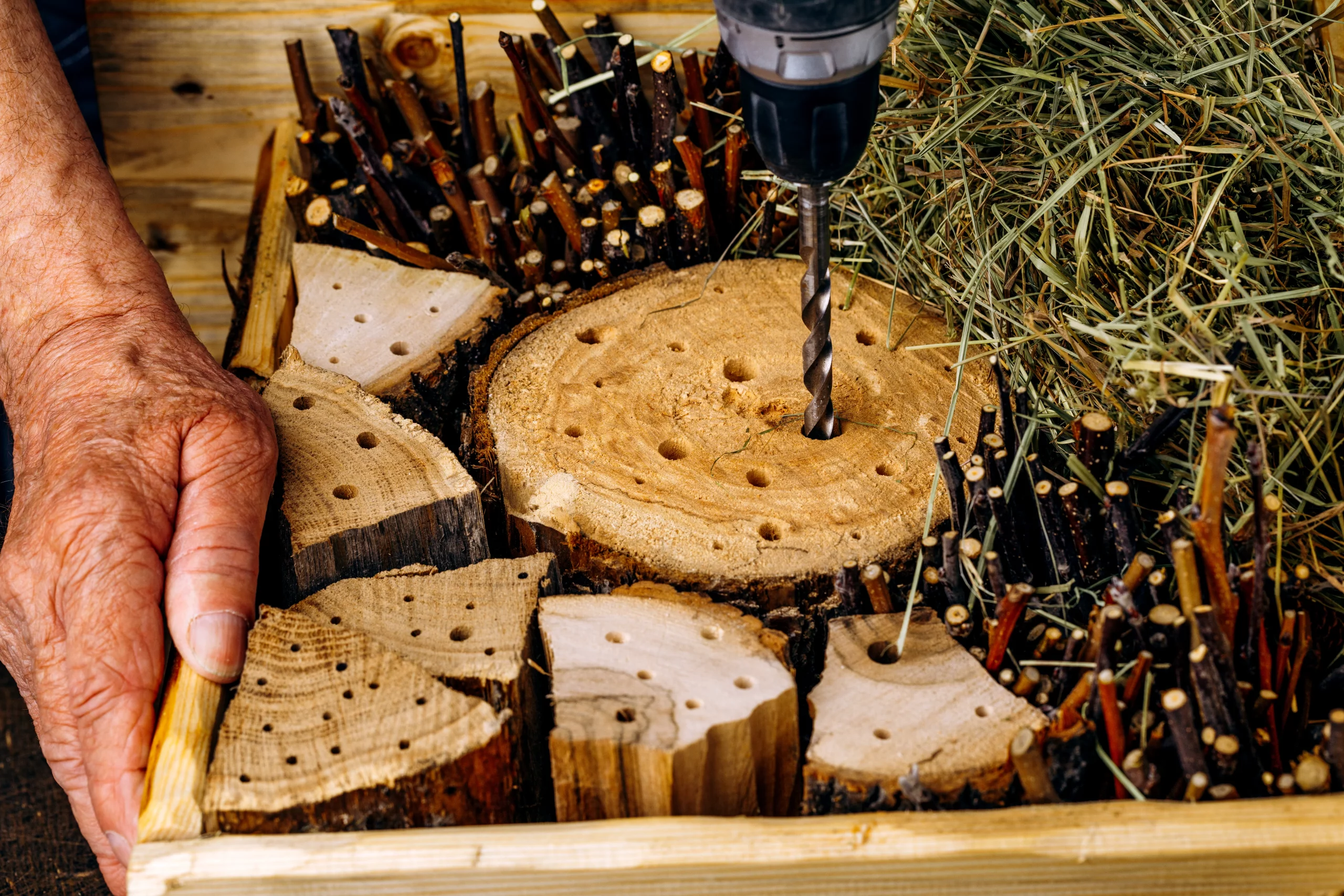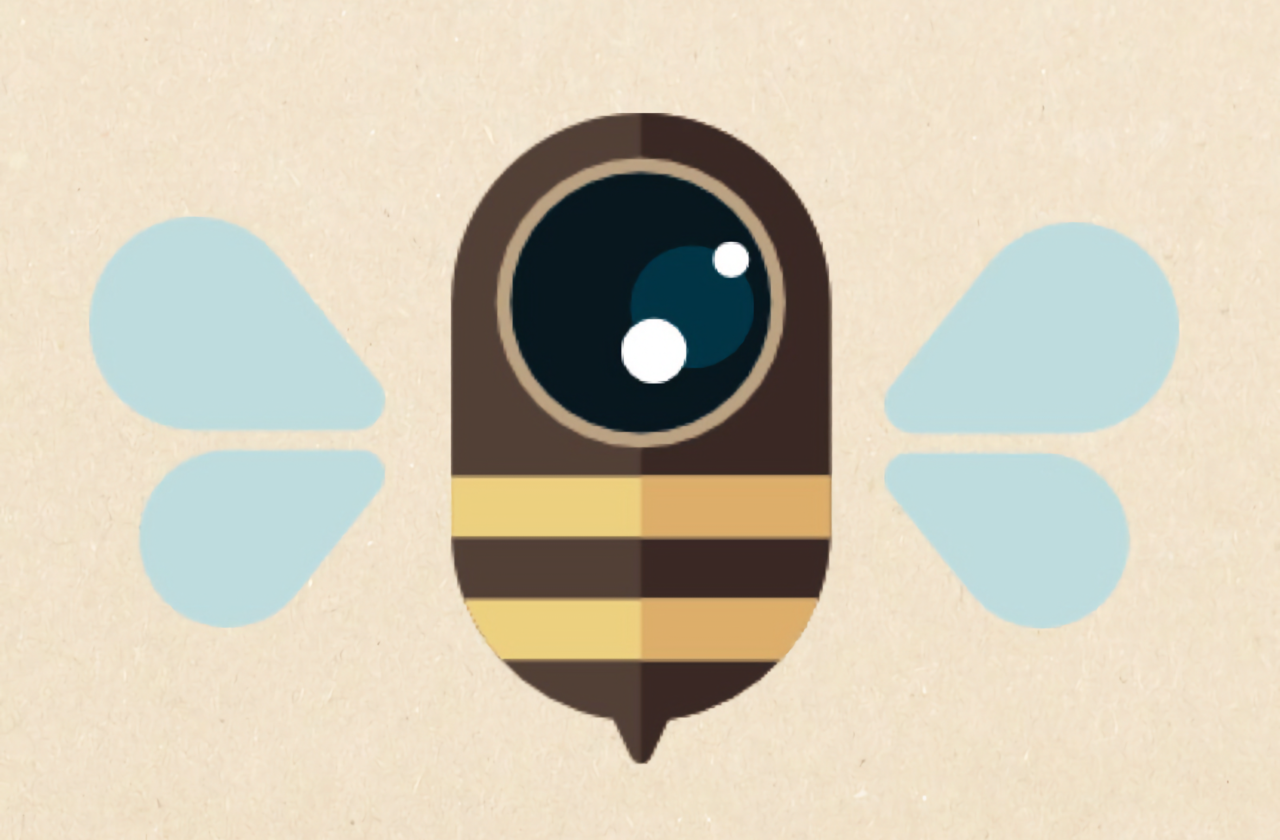Guest article of the WDC
Little whale in great distress - together for porpoise protection
Author: Fabian Ritter

Matches:
You hardly knew anything about porpoises until now? Then dive into their world with me – off Denmark we managed to film the small, shy whales by drone. Even I, as a marine biologist, was able to gain some new insights into the lives of porpoises.

Mit dem Laden des Videos akzeptieren Sie die Datenschutzerklärung von YouTube.
Mehr erfahren
For many years, we at WDC have been dealing with the issue of bycatch, have often worked our way through the political situation, and many times we have asked ourselves what successes we actually have to record.
Because the harbor porpoise, the only strictly protected whale species living in Germany, continues to die by the hundreds every year in the Baltic and North Seas. Main cause of death: fishing nets.
Animals killed by fishing in Europe: many thousands. The scandal: even in protected areas, gillnets are still allowed – in other words, in the very places where the animals should be particularly protected from threats.
In the central Baltic Sea, the harbor porpoise is acutely threatened with extinction, with only about 500 individuals still living there. If we don’t act quickly, it will be too late and we could lose this unique population forever. That’s why in November 2020, WDC launched the campaign “Save the porpoises – set nets out of protected areas!”
We are very pleased that the Bees & Trees Foundation is promoting our cause and thus actively supporting us in putting pressure on the federal government, which has not achieved much in marine protection in the last decades and is thus partly responsible for the massive endangerment of the harbor porpoise.

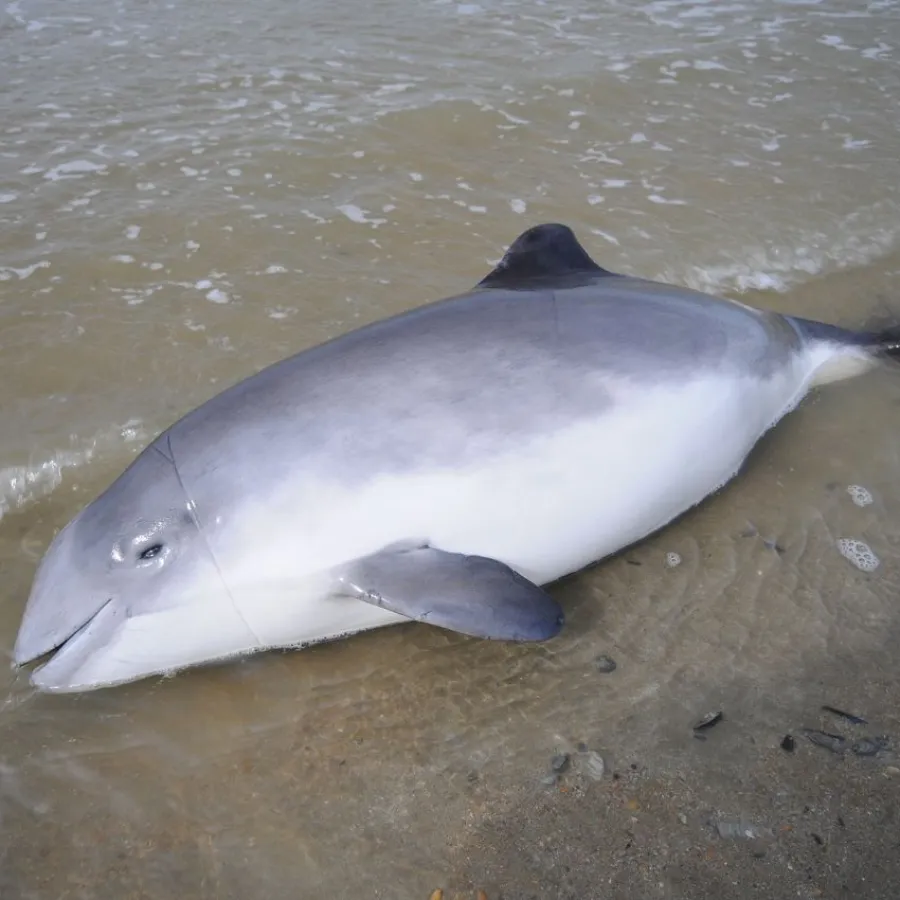
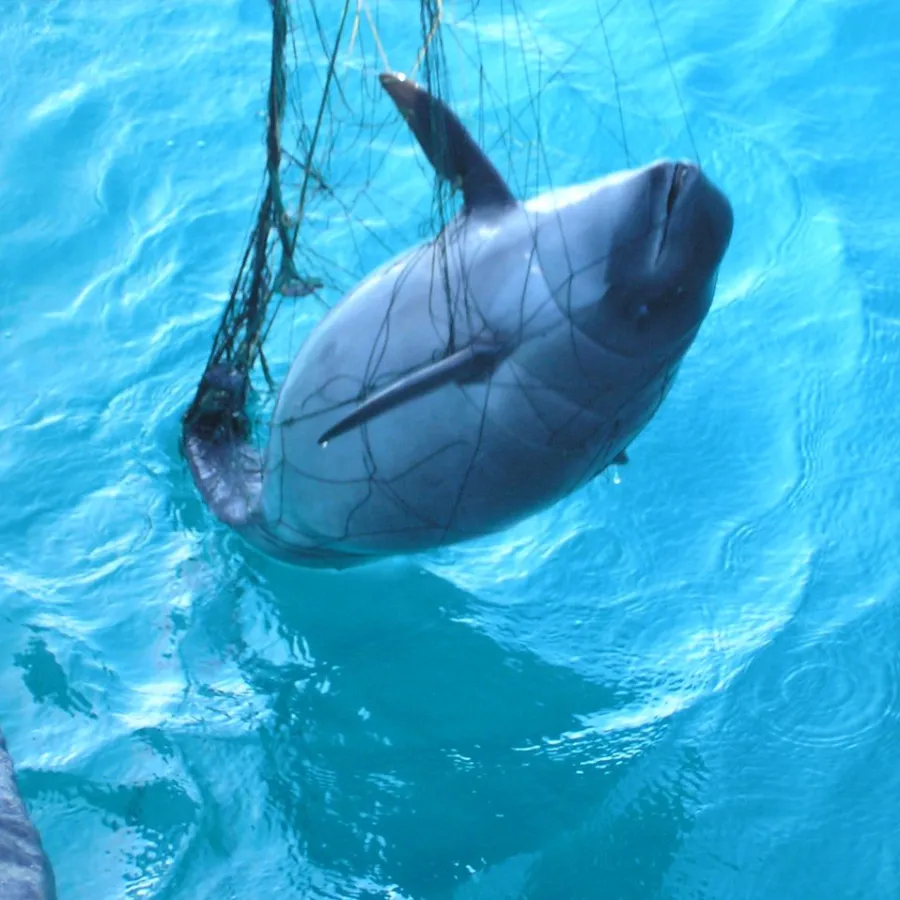
We urgently need marine protected areas that not only exist on paper, but actually deserve their name. 115 scientists, including 76 experts from Europe, signed our letter to Ms. Klöckner, joining our call for a permanent ban on gillnets in German marine protected areas.
With a petition initiated by marine conservation activist Maximilian Gabriel, WDC and Deutsche Umwelthilfe, we demand that Federal Minister of Agriculture Julia Klöckner immediately ban gillnets from protected areas. Our goal: 100,000 signatures, which we want to hand over to the minister before the 2021 federal elections.
Together with Deutsche Umwelthilfe, we organized an online seminar for parliamentarians and representatives of the relevant ministries (agriculture and environment) as well as representatives of the EU Commission in June 2020. Through the contributions of Professor Boris Worm from Dalhousie University and Dr. Michael Dähne from the German Oceanographic Museum, we succeeded in making decision-makers aware of the urgency of marine conservation – because the disappearance of harbor porpoises can have unforeseeable consequences for the marine ecosystem.
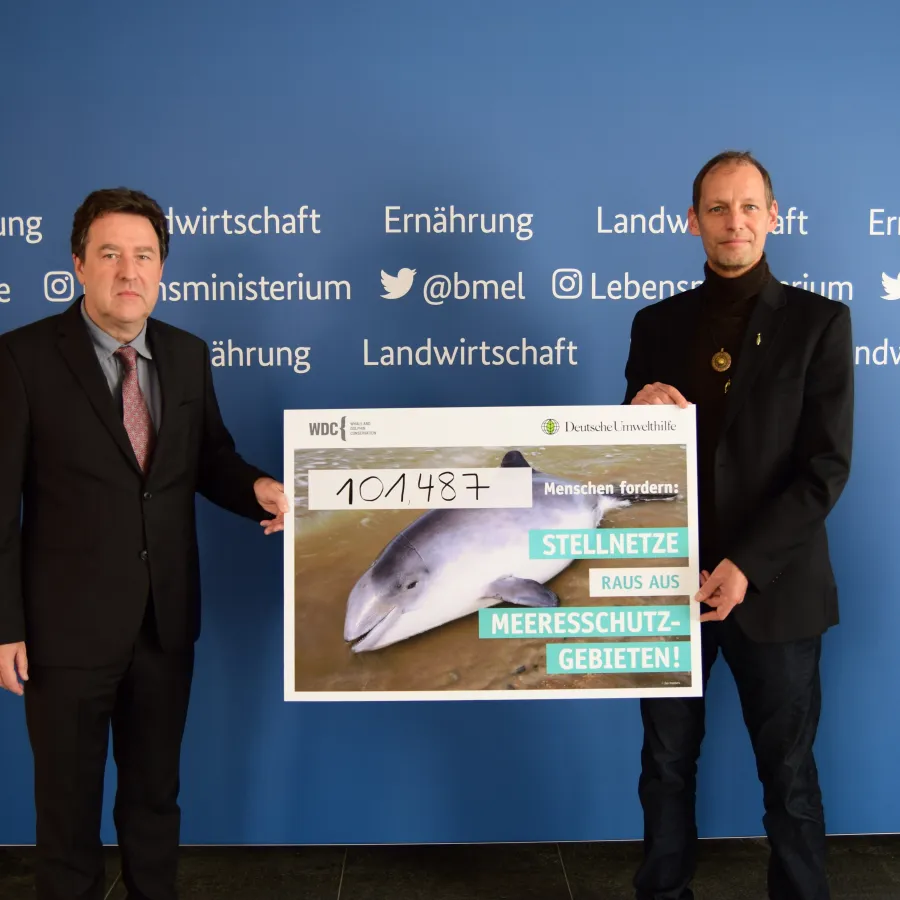
It looks like our targeted and persistent work for the protection of the seas and harbor porpoises in Germany is finally bearing fruit after more than 20 years: There is now real movement at the political level and it seems that the EU will soon decide that at least from some protected areas in Sweden, Poland and Germany – set gillnets will be (temporarily) banned. For the work of WDC and partner NGOs this would be a great success and an important step in the right direction, because for the first time ever a ban on gillnets would be pronounced in the EU. So after years of stalemate on porpoise conservation, we would have tangible action in front of us that even the influential fishing lobby would have to bow to. It would be tantamount to a turning point.
WDC can also chalk this up as a success for itself, because we were in the lead in 2019 to demand such measures concretely from the EU Commission.
Nevertheless, much remains to be done: Because in order to really save the harbor porpoise of the central Baltic Sea, a permanent ban on set gillnets in all marine protected areas is necessary. In addition, regulations outside protected areas must also become effective. So WDC’s work is far from over!
We thank the Bees & Trees Foundation for their generous support of our campaign and hope that together we can save the Baltic porpoises from extinction.

